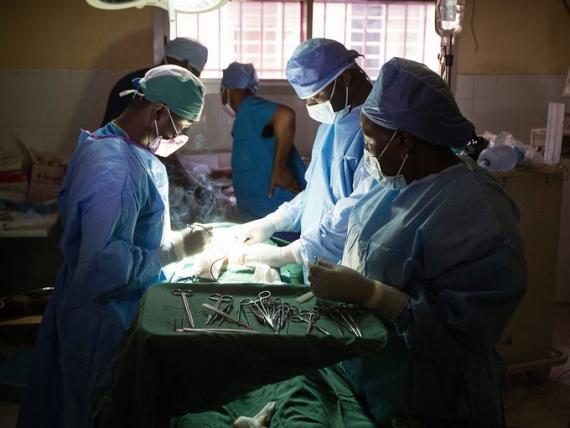USA TODAY By Greg Zoraya Nov. 23, 2014
MONROVIA, Liberia — A snapshot of the Ebola epidemic raging across West Africa shows a wildfire of infections only slightly contained.
While cases have been on the decline in Liberia, the outbreak is worsening in neighboring countries, where basic Ebola-fighting tools are impractical.

An undated United Methodist News Service photograph shows Martin Salia, left, performing surgery at the Kissy Hospital outside Freetown, Sierra Leone, in April. Salia died Nov. 17 while being treated at a biocontainment unit at Nebraska Medical Center in Omaha. (Photo: Mike DuBose, United Methodist News Service, via European Pressphoto Agency)
Identifying the infected and those they've touched, and isolating them to break the transmission chain are all but impossible in Sierra Leone's capital of Freetown as well as the jungles of Guinea, says Jordan Tappero, the Centers for Disease Control and Prevention's second-in-command for the regional response...
Recent Comments